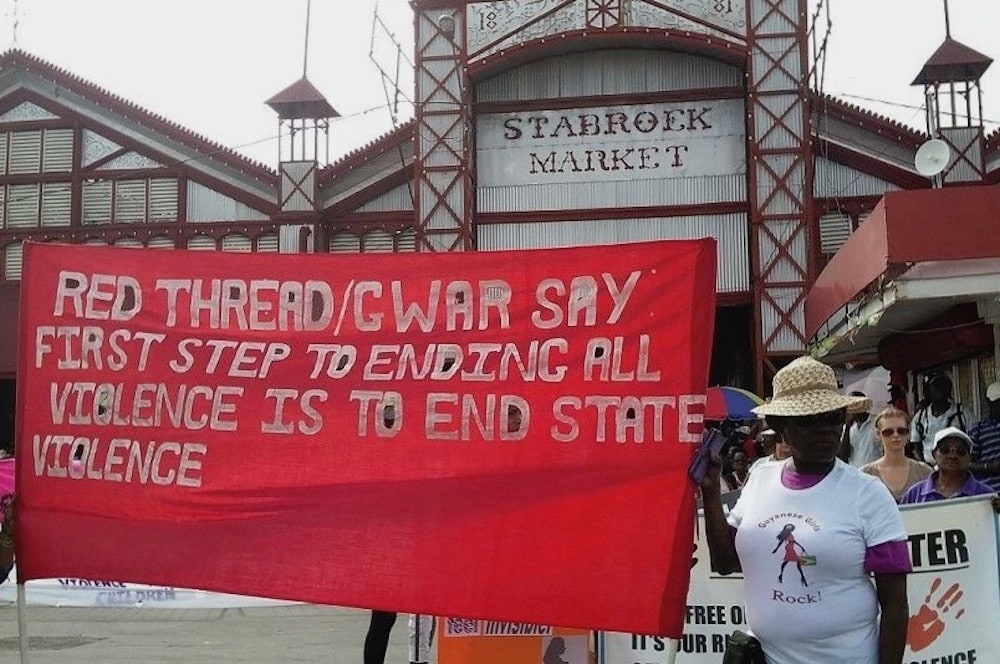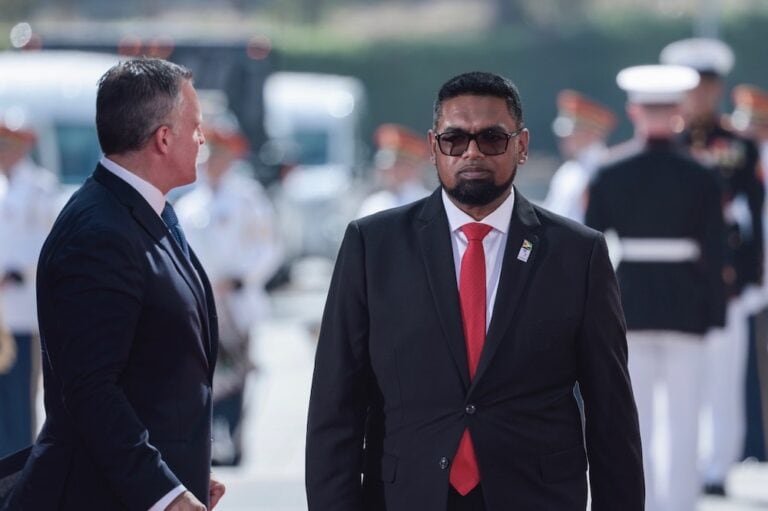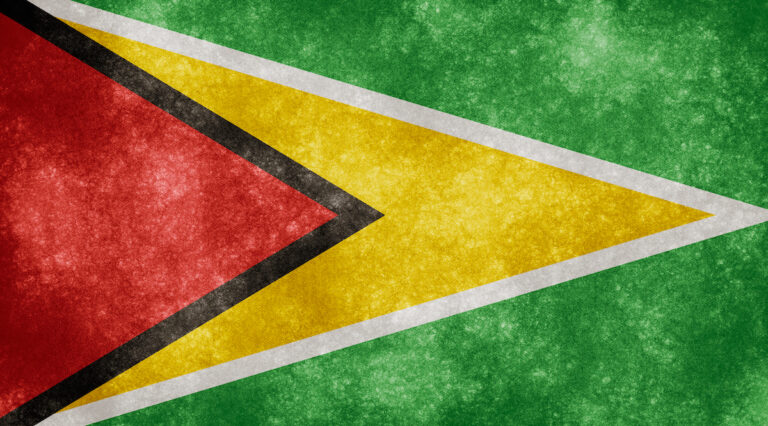Those protesting sexual and other forms of extractive violence are allegedly being targeted.
This statement was originally published on globalvoices.org on 17 August 2023.
All over the world, when activists speak out and begin to gain the kind of traction that leads to change, their efforts are often met with threats of violence — and climate crisis activists are on the frontline. Activists in Guyana, which was recently discovered to hold a wealth of oil reserves, are currently experiencing such threats, which have intensified over the last five months. Most appear to be primarily targeted at women, who have been on the receiving end of death threats and other forms of intimidation for speaking out against mining, fossil fuel extraction and sexual violence.
According to the Stabroek News, on the heels of a threat in late July, Guyanese citizens issued a letter of support for the activists. On July 31, women’s organisations, as well as members of the Caribbean diaspora and women region-wide, issued a second statement, which has been endorsed by climate justice movements like 350.org and Instituto Climainfo.
Entitled ‘Touch One, Touch All,’ the statement’s header is a nod to the late Guyanese activist Andaiye, who used the call to action in a 2017 campaign against sexual violence in the Caribbean:
The statement, signed by women Caribbean-wide, condemns such attempts to silence those “who report or protest sexual violence and all other forms of extractive violence that menace the region”:
The struggle of the women of Red Thread to defend women, indigenous people and the environment is a Caribbean struggle, not just a national one. Sexual violence and gender-based violence is rampant across the region. The UN has reported that Jamaica has the second highest rate of femicide in the world at 11 per 100,000. Trinidad and Tobago stands at 6.6 per 100,000. We therefore all stand to gain from struggles against sexual violence wherever we are in our region.
Just as urgent, the statement continues, is the fact that “the natural landscape of the entire Caribbean is at risk”:
Our beaches disappear daily. Our lands are deforested. Our people are uprooted from their homes. Our water and air is polluted. Our fish die and our livelihoods are at risk. As the world burns, it is obvious that we are all called upon to struggle to prevent the destruction of our environment through mining, fossil fuel extractivism, deforestation, pollution and dispossession whether we are located in Jamaica, Barbados, Trinidad and Tobago all the other many beautiful Caribbean islands, Suriname, Belize or Guyana.
Despite the statement and reports of email threats, however, Freddie Kissoon, in an August 12 column for the state-owned Guyana Chronicle newspaper, asked, “What work does Red Thread do that is of a controversial nature for people to want to harm the organisation?”
Red Thread shares the progress it makes in various spheres on social media and on its website, but some commentary about the group is tinged with both political and class undertones. Critics accuse Red Thread of being anti-government and elitist. Red Thread has responded by listing various instances in which it spoke out against the current opposition when it was in government, adding that its “political agenda” involves “work[ing] with Guyanese together, across race and political party, starting with grassroots women …”
By all accounts, the threats do not appear to simply revolve around extractive violence against the environment, but also to be connected to sexual violence against women, and general attempts to silence civil society.
A Guyana-based media source who requested anonymity told Global Voices that individuals and civil society groups expressing dissent against the government are being victimised in various ways — a tactic they say was also employed by the previous administration. However, the source suggested that such victimisation has taken on greater intensity in the context of the management of the country’s fledgling oil and gas economy. Nevertheless, Red Thread has been staging monthly protests outside the Office of the President to raise awareness about some of the key clauses in the country’s oil contracts with ExxonMobil.
The group has also been very vocal in calling for the resignation of Minster of Local Government and Regional Development Nigel Dharamlall, who has been accused of raping a 16-year-old Indigenous girl. All this is in addition to Red Thread speaking out about issues affecting everyday people – like the cost of living, a cause that it has championed for a long time. “Red Thread’s critics cannot put even one foot in these women’s shoes,” our source told us. “These women are on the ground, every day, doing the work […] driven by the public interest.”
Red Thread’s statement emphasised:
We remind our governments that we are watching how you respond to those whose fearless defence against sexual violence and extractive violence to our land is a model for all of us throughout the region.
Karen De Souza, who co-founded Red Thread, has suggested that the police response to the threats has been less urgent than they would have expected. Our source was not surprised by the police response, especially as it relates to cybercrime, where reports are made but proper investigations rarely follow.
In the interim, Caribbean women and women’s organisations are rallying behind Red Thread, co-signing its statement in a show of support: “Hands off the women of Red Thread. Touch one! Touch all!”



